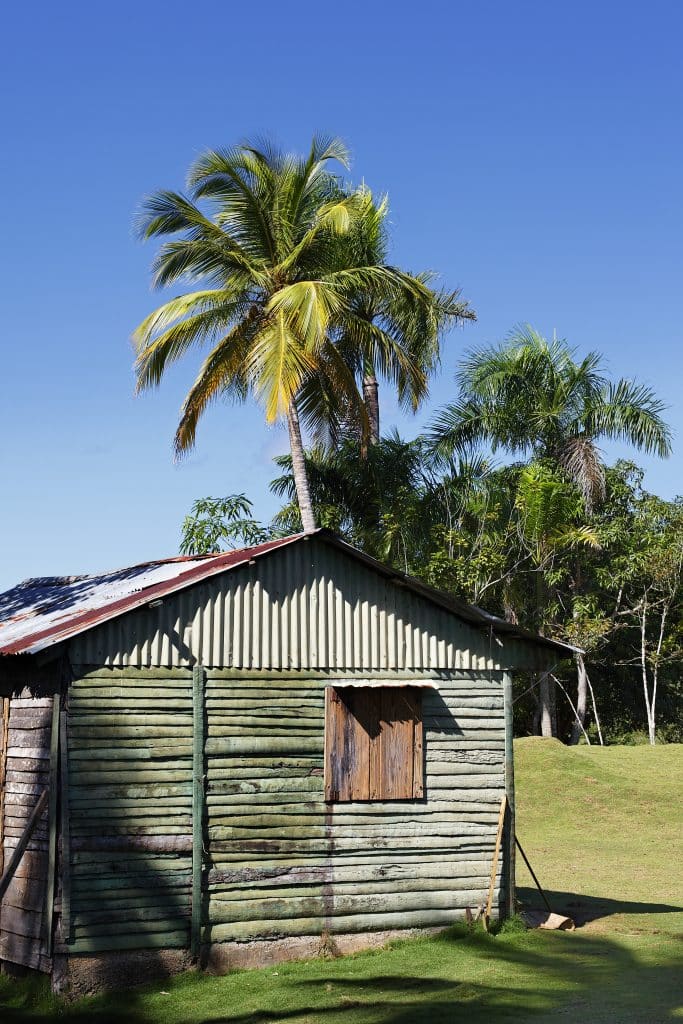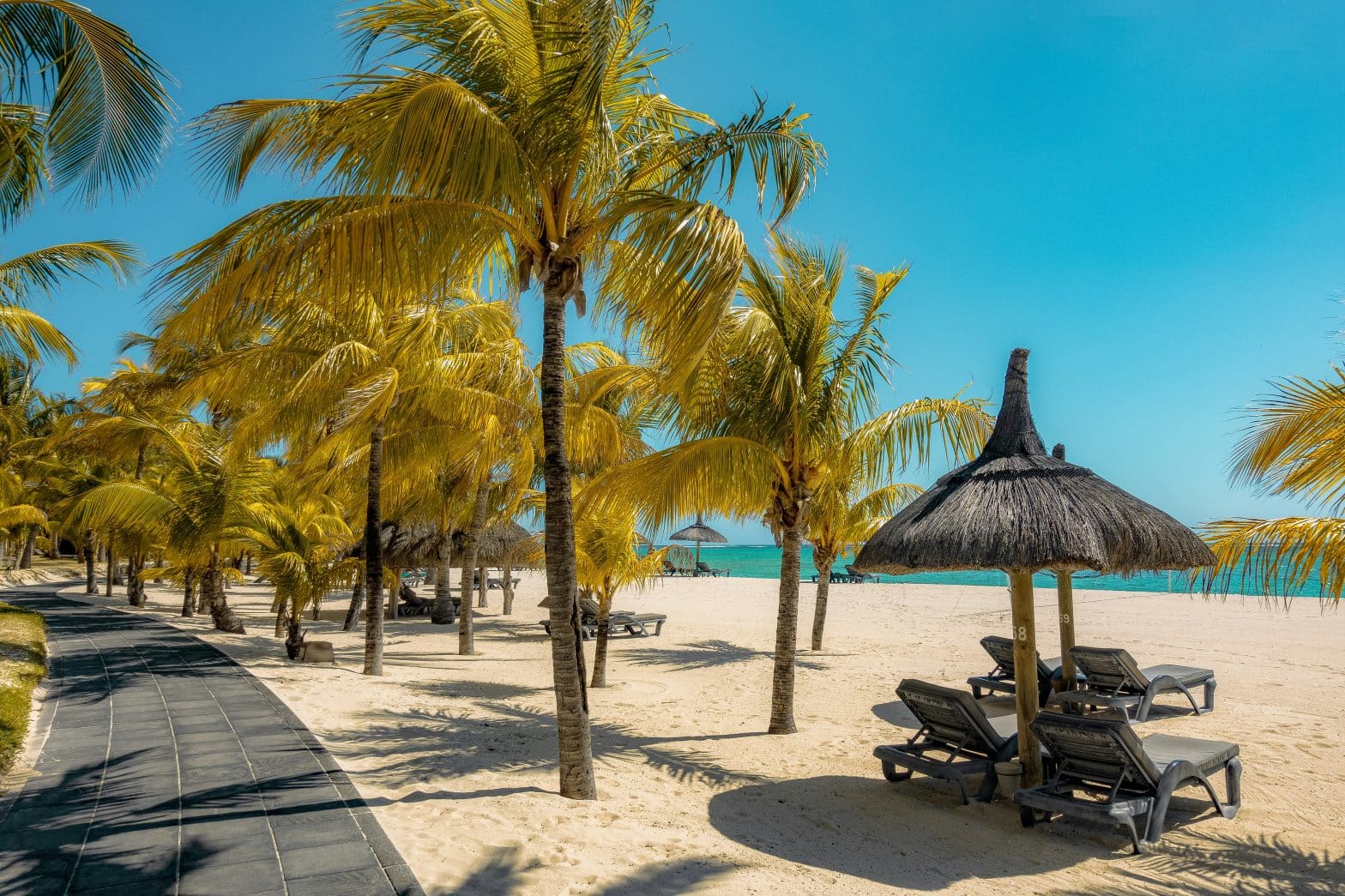Are you tired of the cold and grey weather, the hectic pace of big cities and spending months without seeing the sea? Are you tired of a lifestyle that doesn’t suit you? If so, whether you are single, in a couple or a family, moving to Mauritius could soon become the obvious choice.
But moving abroad also means preparation! And the monthly expenses you will need to budget for are something you should not fail to consider.
To help you estimate how much you will need to live on the island, we have put together a comprehensive guide to the cost of living in Mauritius.
Overview of the average cost of living in Mauritius
An expatriate in Mauritius should expect to spend an average of 900 € per month. A family of four will need 2,600 €per month.
These estimates include all major expenses, such as housing, groceries, transport, healthcare, education and leisure activities.
| Average monthly salary for expatriates | €1,200 |
| Rent for a one-bedroom studio in the city centre | €400 € |
| Purchase price of an apartment per square metre | €2,000 – 2,600 |
| Petrol (1 litre) | €1.32 |
| Mobile phone plan (calls + 10 GB of data) | €14 |
| Dozen eggs | €1.95 |
| Meal for two at a restaurant | €40 |
| Cinema ticket | €5.75 |
Currency and exchange rates Mauritius
The official currency of the country is the Mauritian rupee, abbreviated to ‘MUR’ and symbolised by ‘Rs’.
One Mauritian rupee is equivalent to 0.019 €, or 52.21 rupees to 1 €. (Index on 11 June 2025).
The US dollar is commonly used for commercial transactions, as the Mauritian rupee has been depreciating for several years, losing more than 30% of its value to date.
Housing in Mauritius
Here are the average monthly prices for accommodation in Mauritius, depending on the type of accommodation chosen:
- A one-bedroom studio in the city centre: 20,900 MUR (€ 400)
- A one-bedroom studio on the outskirts: 15,700 MUR (€ 300)
- A three-bedroom apartment in the city centre: 36,550 MUR (€ 700)
- A three-bedroom apartment on the outskirts: MUR 28,700 (€ 550)
If you want to buy a property, expect to pay an average price per square metre of MUR 135,750 (€ 2,600) in the city centre and MUR 104,400 (€ 2,000) outside the city.
As for energy bills, the annual cost is around MUR 2,600 (€ 50) for an 85 m² apartment.
To give you a better idea of how costs are distributed, here are the prices of electricity and gas in the country:
- KWh (kilowatt hour) of electricity: MUR 5.75 (€ 0.11)
- 12 kg gas cylinder: MUR 190 (€ 3.65)

Cost of food in Mauritius
Local products are relatively affordable, while the devaluation of the Mauritian rupee has led to an increase in the price of imported products.
Here are the average prices of basic food items on the island (in Euros):
| Item | Average price in Mauritius |
| Milk (1 L) | 1,23 € |
| Water (1.5 L) | 0,56 € |
| Bread (500 g) | 0,59 € |
| Dozen eggs | 1,95 € |
| Local cheese (1 kg) | 8,40 € |
| Chicken fillets (1 kg) | 4,90 € |
| Meat (1 kg) | 10,70 € |
| Lobster (1 kg) | 24 € |
| Apples (1 kg) | 1,90 € |
| Bananas (1 kg) | 1,66 € |
| Tomatoes (1 kg) | 2,60 € |
| Potatoes (1 kg) | 0,95 € |
| Onions (1 kg) | 0,95 € |
| Local beer (500 ml bottle) | 1,45 € |
| Imported beer (330 ml bottle) | 1,80 € |
Average transport costs in Mauritius
Bus: To take the bus, allow an average of 44 MUR (€0.84) per journey.
Express metro: Mauritius is also served by an express metro, which mainly connects Port Louis to Curepipe.
The price of a ticket depends on the distance, but on average, you should expect to pay between 30 and 50 MUR, or approximately €0.60 to €0.95. You can also buy a MECard (rechargeable prepaid card) for MUR 150 (€ 2.90), which offers up to 10% off your journey.
Taxi: Taxis are generally more expensive. The starting price for a journey is on average 198 MUR (€ 3.80), plus 150 MUR (€ 2.90) per kilometre travelled.
Ferry or plane: For inter-island travel (because even though we refer to Mauritius as ‘the island’, it is actually an archipelago), you will need to take a ferry or plane.
- By ferry, for example, you can expect to pay around 3,500 MUR (€ 67) for a return trip between Port Louis and Rodrigues.
- By plane, the price is higher, averaging over MUR 5,200 (€ 100), with variations depending on the season (low or high).
Car: Finally, for motorists, the price of a litre of petrol is around MUR 69 (€ 1.32). Note that the country’s two main motorways are free!
The cost of healthcare in Mauritius
| Medical services | Average price |
| Consultation with a general practitioner | 1,000 Rs (€20) |
| Consultation with a specialist | 1,500 Rs (€29) |
| Home medical consultation | 2,000 Rs (€38) |
| MRI | Rs 12,000 to Rs 25,000 (€230 to €480) |
| Hospitalisation in a standard room | Rs 3,000 to Rs 5,000 per day (€58 to €96) |
| Caesarean section | Rs 80,000 to Rs 150,000 (€1,500 to €2,900) |
The Mauritian healthcare system is based on universal coverage, which provides free or partially free care in public facilities.
However, waiting times and the quality of care can sometimes vary. This is why private hospitals and clinics have sprung up to compensate for the limitations of the public sector.
To ensure they have good health coverage, many expatriates choose to take out international private health insurance. Beyond simple private insurance, this has the advantage of being valid in Mauritius, in the expatriate’s country of origin and throughout the rest of the world.
It provides:
- Access to quality healthcare everywhere
- Repatriation in case of emergency
- Guaranteed rapid medical care
Education in Mauritius
If you have young children, you should budget an average of MUR 6,800 (€ 130) per month for a private nursery school.
Several private schools offer bilingual or even trilingual education.
To give you an idea of the costs, here is an overview of the annual tuition fees for some international schools:
Greencoast International School (English-speaking):
- Primary school (ages 1 to 6): registration fee of MUR 60,000 (€ 1,150), then MUR 24,000 (€ 460) per month.
École du Nord (French-speaking):
- Nursery school: MUR 151,610 (€ 2,900)
- Middle and upper nursery school: MUR 175,390 (€ 3,360)
- Primary school: MUR 175,390 (€ 3,360)
- Middle school: 196,173 MUR (€ 3,760)
- Middle school – international section: 230,880 MUR (€ 4,420)
Average prices for activities
How much should you budget for leisure activities in Mauritius? Here is an idea of the average prices for some of the must-see leisure activities:
- Going to the beach: if it is not free, admission is on average 315 MUR (€ 6).
- Visiting the Blue Penny Museum in Port Louis: 325 MUR (€ 6.20) per adult and 200 MUR (€ 3.80) per child.
- Spend a day at Casela Park: MUR 1,525 (€ 29.20).
- Go hiking in Black River Gorges National Park: admission is free!
- Get a gym membership: MUR 1,540 (€ 29.50).
- Go to the cinema: 300 MUR (€ 5.75) per ticket.
- Lunch for two at a restaurant: 2,040 MUR (€ 39).
- Drink a cappuccino in a café: 112 MUR (€ 2.15).
How much do you need to earn to live comfortably in Mauritius?

The average salary in Mauritius is around 44,375 Mauritian rupees, or € 850.
However, expats generally earn higher salaries due to the positions of responsibility they hold, their work for international companies, or their status as self-employed or digital nomads. They earn more than 62,650 MUR on average, or more than € 1,200.
Given that the average monthly budget for one person, including all expenses, is around € 900, the average salary for expats allows them to live comfortably in Mauritius.
Cost of living in Mauritius compared to the UK
The cost of living in Mauritius is up to 75% lower than the cost of living in the UK, including rent. This significant difference is mainly due to property prices, which are significantly higher in the UK (+100%), as well as the cost of groceries, leisure activities and certain outings, particularly eating out.
However, it should be noted that the average salary in France is also higher (around € 2,500 compared to € 1,200 for an expatriate in Mauritius). Unsurprisingly, this also increases the purchasing power of French people compared to Mauritian residents.
It should be noted, however, that Mauritius is becoming increasingly expensive, particularly as a result of inflation and rising prices for imported goods.
Cost of living in Mauritius compared to neighbouring countries
Compared to Réunion
Admittedly, Réunion is not a country but a French overseas department, but comparisons of the cost of living are often made, given that the two islands offer a very similar lifestyle.
Here too, living in Mauritius is cheaper, with an average difference of around 40%. The difference is particularly noticeable between the two capitals, with all items of expenditure (housing, shopping, activities, etc.) being more expensive in Saint-Denis than in Port Louis.
By way of comparison, a one-bedroom studio in the city centre costs € 600 in Saint-Denis, compared to € 400 in Port Louis.
However, as in mainland France, salaries in Réunion are higher than in Mauritius.
If you are interested in this topic, check out our guide to expat life in Mauritius, which includes a section specifically dedicated to comparing the two islands.
Compared to the Seychelles
The cost of living in the Seychelles is 40% higher than in Mauritius. While a person needs € 900 to live in Mauritius, they need around € 1,650 in the Seychelles.
Housing and leisure prices are higher, mainly due to the more touristy nature of the Seychelles compared to Mauritius.
However, there is a nuance. Mauritian purchasing power is higher thanks to a better ratio between salaries and prices in the country.

